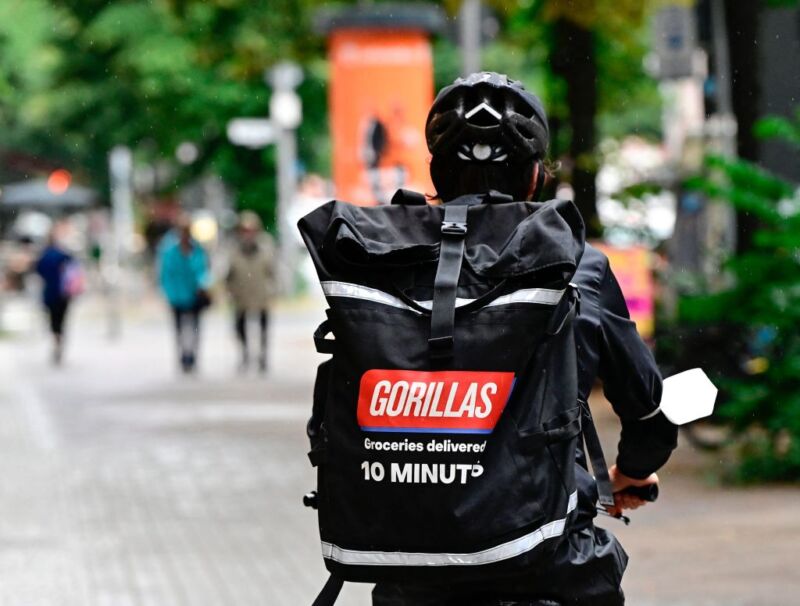Grocery delivery “dark stores” in Amsterdam have residents hopping mad

Enlarge / A bicycle courier of grocery delivery company "Gorillas" wears a backpack with the logo of the startup on his way to deliver purchases in Berlin. (credit: Tobias Schwarz | Getty)
In May 2021, grocery delivery company Zapp moved into a small garage, squashed between red brick apartment buildings on a residential street called Fagelstraat in Northwest Amsterdam. Many locals had never heard of dark stores, the mini warehouses grocery apps use to dispatch local deliveries. We didn't know exactly what they were doing or what type of business it was," says local resident Alex (not his real name).
In less than a year, that small Fagelstraat garage has become an extreme example of how dark stores can clash with local neighbors. Alex, who has lived on the street for seven years and requested anonymity to avoid further conflict with riders, says there are now 10 to 15 deliveries each day, and giant lorries regularly block the narrow road. It's a 24/7 business," he says, so riders are coming in and out late at night and early in the morning. At 2 am, I often have people standing in front of my window, smoking and talking really loudly while they are taking a break." After a month of this, riders and residents started squaring off as tensions boiled over, Alex says. There's been a few instances when I almost got into a fight," he says. One [rider] was completely in my face. It was pretty frightening."
In the past year, the spread of dark stores has rapidly accelerated as grocery delivery apps Gorillas, Getir, Flink, and Zapp compete to dominate the Dutch market. As of January, there were 31 dark stores in Amsterdam alone. The Netherlands appeals to these companies because the country is small, densely populated, and flat, meaning it's easy for their couriers to operate, says Yara Wiemer, an analyst at research and consulting company Kantar. Demand is also soaring. The number of Dutch consumers using grocery delivery apps more than tripled to 700,000 between 2021 and January 2022, according to Wiemer. But as the four apps jostle for dark store space in residential areas so they can offer faster deliveries, complaints about noise, bikes blocking pavements, and increased traffic have become common across the country.
Read 14 remaining paragraphs | Comments